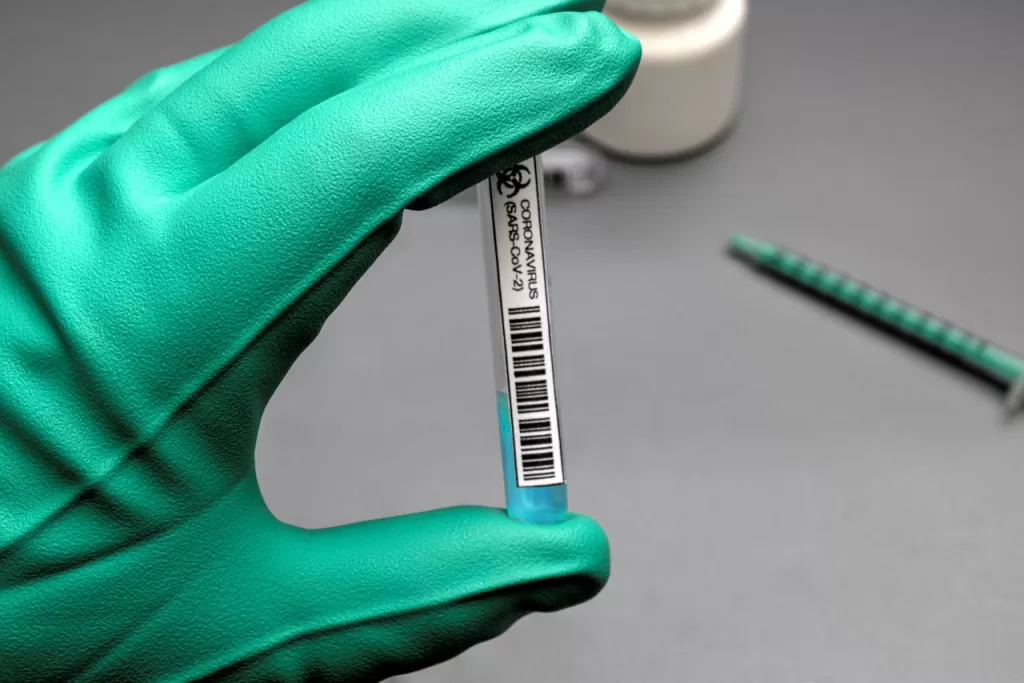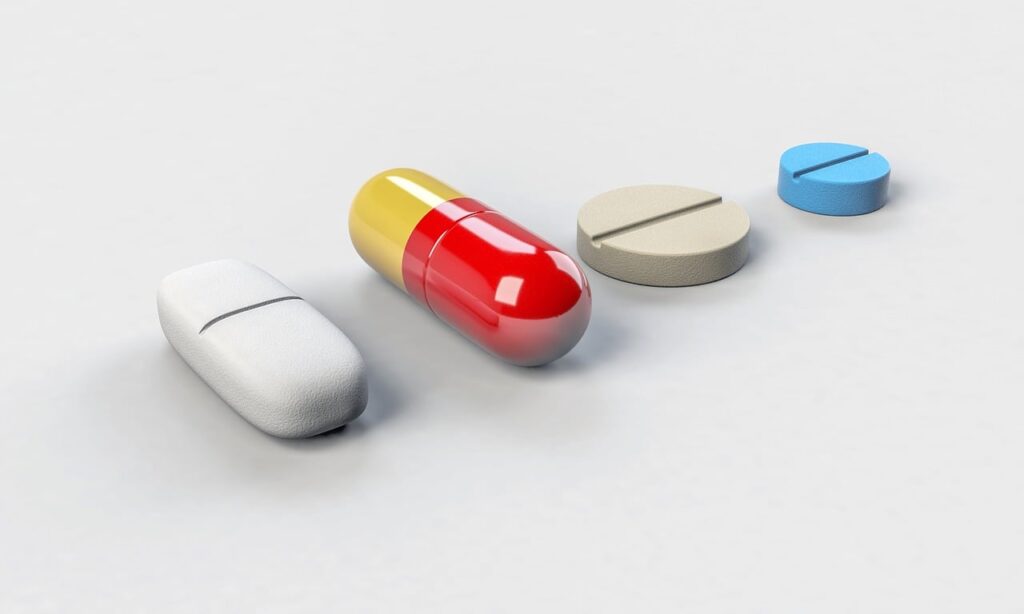Antidotes are chemical or plant-derived substances or treatments specifically designed to counteract the effects of various toxins, poisons, overdoses, or harmful substances in your body. You may call it anti dote or just anti-dote. Antidotes play a crucial role in medicine. They offer a means to reverse the potentially life-threatening consequences of exposure to harmful agents. Here, I will guide you through every aspect related to antidotes, including their unique purpose, composition, examples, and their role in different fields and contexts.
What Are Antidotes?
According to the National Institutes of Health, an antidote, in essence, is a remedy that can neutralize the negative effects of a poison or toxin in your body, making it essential in emergency medical situations. Antidotes are diversified and can take various forms. These include drugs, chemicals, or even natural substances. Their primary or sole purpose is to counteract the harmful effects of specific agents in your body and provide you with a life-saving treatment.
Uses of Antidotes
Antidotes are primarily used to:
- Counteract Poisoning: The most common use of antidotes is to provide you with a remedy to poisoning caused by substances such as drugs, chemicals, and venomous animal bites.
- Manage Drug Overdose: Antidotes are invaluable in cases of drug overdose, helping you reverse the toxic effects of excessive medication.
- Prevent Life-Threatening Consequences: In emergency medicine, antidotes are administered to prevent fatalities due to poisoning, thereby saving lives.
Examples of Antidotes
Antidotes encompass a wide range of substances and treatments. Some of the common examples include:
- Naloxone: An antidote for opioid overdoses, which can reverse the life-threatening respiratory depression caused by opioids like heroin and morphine.
- Flumazenil: An antidote for benzodiazepine overdoses, helping to counteract the sedative effects of drugs like Valium or Xanax.
- Atropine: Used as an antidote for organophosphate pesticide poisoning and nerve agent exposure.
- Charcoal Activated 280 mg, Value Size, 360 Capsules, Nature’s Way“
What Are Antidotes Made Of?
Antidotes are made from various substances. These include synthetic chemicals, biological compounds, or even natural ingredients. Their composition depends on the specific poison or toxin they are designed to counteract.
Antidote Drugs
From its name, antidote drugs are antidotes designed in drug forms i.e. tablets and syrups. Antidote drugs are therefore pharmaceutical or medical substances specifically designed to counteract the effects of a particular poison or toxin in your body systems. They are a crucial part of emergency medicine and toxicology.
What Does Antidote Do in the Body?
An antidote works by either binding to the toxic substance, rendering it inert, or neutralizing its effects on the body. They can block or reverse the toxic reactions that the poison triggers in your body.
Antidote Recovery Shampoo
Antidote Recovery Shampoo is a hair care product that aims to repair and rejuvenate damaged hair. It does not have any relation to medical antidotes.
Antidotes for Different Anticoagulants
Anticoagulants are medications that prevent blood from clotting. Anticoagulants have specific antidotes for reversal in emergency situations. Protamine sulfate is used for unfractionated heparin, while idarucizumab reverses dabigatran, andexanet alfa targets Factor Xa inhibitors, and vitamin K injections for pregnant women counter warfarin. These antidotes should be administered under medical supervision, as the choice depends on the specific anticoagulant and the patient’s condition.
Antidote for Stress
An antidote for stress can be any activity or practice that helps you manage and reduce your mental stress. An antidote for stress doesn’t come in the form of medication but rather through various stress management techniques. Effective strategies include relaxation exercises, deep breathing, meditation, yoga, regular exercise, maintaining a balanced diet, getting enough sleep, and seeking social support. Reducing stress can greatly improve one’s mental and physical well-being.
Remedies or Antidotes After Exposure
Remedies or antidotes after exposure refer to treatments or interventions used to mitigate the effects of exposure to harmful agents, such as chemicals or toxins. This may involve medical treatment or decontamination procedures.
How Do Antidotes Work?
Antidotes work through various mechanisms, such as binding to the toxic substance, neutralizing its effects, or enhancing the body’s ability to eliminate it. Their specific action depends on the poison or toxin in question. Their main objective is to counteract the toxic effects of specific substances. Others may enhance your body’s natural processes to detoxify or neutralize the poison.
The key lies in the antidote‘s ability to target and disrupt the toxic agent’s action, effectively restoring the body’s normal functioning. This precision and tailored approach to neutralizing toxins exemplifies the remarkable achievements of medical science and pharmacology, showcasing the ingenuity and dedication of researchers in the field of antidotes.
What Are Antidotes Based On?
Antidotes are based on a deep understanding of toxicology, pharmacology, biochemistry, and the specific mechanisms of action of poisons and toxins. Their development is rooted in scientific research. Antidotes are meticulously crafted based on the specific toxic agents they are meant to counteract. These treatments are tailored to neutralize the effects of toxins, poisons, or drugs, often by binding with them or facilitating their elimination from the body.
Antidotes exemplify the scientific principle of specificity, each designed to address a particular poison or toxic substance, ensuring precise and effective intervention in cases of poisoning. Their development is a testament to the meticulous research and innovation in the field of toxicology, aimed at mitigating the risks posed by a diverse range of toxins.
Antidotes in Buddhism
In Buddhism, antidotes often refer to mental or spiritual practices that help individuals counteract negative emotions, attachments, or suffering. These practices include meditation, mindfulness, and ethical conduct.
Chemical Antidote
A chemical antidote is a substance designed to neutralize or reverse the effects of a specific chemical poison or toxin. These can range from compounds that react chemically with the toxin to drugs that counteract their effects. These antidotes work through various mechanisms, such as binding to the toxin, neutralizing its effects, or facilitating its removal from the body. They are essential in emergency medicine to swiftly and effectively treat poisoning cases. Chemical antidotes are a testament to the precision and innovation in toxicology and pharmacology, providing critical support in scenarios where rapid intervention can mean the difference between life and death.
4 Most Common Antidotes
Common antidotes include substances like activated charcoal for oral poisoning, naloxone for opioid overdoses, atropine for certain poisonings, and flumazenil for benzodiazepine overdoses. These are specific to countering the effects of drugs. These are widely used in medical settings.
How Are Poison Antidotes Made?
Poison antidotes are developed through extensive research and testing. They can be chemical compounds synthesized in a laboratory or biological substances derived from natural plant sources. The antidote’s development often involves studying the mechanism of action of the poison and finding a way to counteract it.
How Many Antidotes Are There?
The number of antidotes is vast and depends on the specific toxins or poisons they are designed to counteract. There is no fixed number, as new antidotes are developed as our understanding of toxins and treatment options advances.
Antidote for Cyanide
Hydroxocobalamin, also known as Cyanokit, is a crucial antidote for cyanide poisoning. In cases of cyanide exposure, whether from smoke inhalation during fires, industrial accidents, or other sources, rapid administration of hydroxocobalamin can effectively bind to cyanide ions, forming a non-toxic compound that the body can eliminate. This antidote serves as a vital tool in emergency medicine, countering the lethal effects of cyanide and saving lives. Its potency against a highly toxic substance exemplifies the crucial role that antidotes play in addressing life-threatening poison-related emergencies.
Antidote for Magnesium Sulfate
Magnesium sulfate, often used to treat conditions like preeclampsia or eclampsia during pregnancy, does not typically require an antidote. However, in cases of overdose, supportive care and medical treatment are provided. There is no specific antidote for magnesium sulfate, as it is not a substance used as a poison or toxin.
Magnesium sulfate is, in fact, used in medical settings as a treatment for conditions such as preeclampsia, and eclampsia, and to prevent seizures in patients with certain medical conditions. It is essential for you to administer magnesium sulfate under the guidance of a healthcare professional, as incorrect dosages or administration can lead to side effects or toxicity. In cases of magnesium sulfate overdose or adverse reactions, treatment typically involves discontinuing the medication and addressing any symptoms or complications as necessary.
Antonyms for Antidote
Antonyms for “antidote” may include terms like “anti-poison,” “antitoxin,” or “harm neutralizer” since an antidote is the opposite of these concepts.
What Poisons Have Antidotes?
Various poisons have corresponding antidotes, including snake antivenom for snakebites, activated charcoal for oral poisonings, and more. The availability of antidotes depends on the specific poison. Antidotes exist for a wide spectrum of poisons, ranging from venomous snake bites to accidental drug overdoses.
These life-saving treatments have been meticulously developed to counteract the specific toxic effects of various substances, including heavy metals, chemicals, and pharmaceutical drugs. Their diverse applications demonstrate the remarkable versatility of antidotes in emergency medicine, addressing a broad range of poison-related threats. This breadth of antidotes highlights the ingenuity of medical science, which tirelessly explores and innovates to safeguard human health and well-being.
What Antidotes Homeopathic Remedies?
Homeopathy does not typically use antidotes in the conventional sense. Homeopathic remedies are based on the principle of “like cures like” and do not typically employ antidotes to counteract the effects of substances. Homeopathic remedies are renowned for their gentle, holistic approach to health, seeking to stimulate the body’s natural healing mechanisms. While not traditional antidotes in the medical sense, homeopathy’s principle of “like cures like” serves as its foundation.
Homeopaths often use highly diluted substances that, in larger doses, would produce symptoms similar to the patient’s condition. These remedies are tailored to each individual, aiming to restore balance and well-being. Homeopathic antidotes are recognized for their unique perspective on healing, respecting the body’s innate ability to restore health and promoting wellness through individualized treatment.
Insulin Antidotes
Insulin does not typically require an antidote. However, in cases of severe hypoglycemia (low blood sugar) caused by excessive insulin, the antidote is glucose or glucagon, which can raise blood sugar levels. Insulin antidotes represent a critical safeguard against hypoglycemia and insulin overdose, offering a beacon of hope for individuals with diabetes or those facing accidental insulin-related emergencies.
These antidotes, typically in the form of glucose or glucagon, act swiftly to restore blood sugar levels to a safe range, preventing potentially life-threatening complications. In the realm of diabetes management, insulin antidotes stand as a vital tool, ensuring that the benefits of insulin therapy are reaped without the risk of dangerous hypoglycemic episodes, exemplifying the power of medical science to provide targeted solutions for complex medical conditions.
What Are Antidotes Known For?
Antidotes are known for their life-saving capabilities. They are crucial in emergency medicine, as they can effectively reverse the toxic effects of various poisons and toxins. Antidotes are renowned for their remarkable ability to counteract the harmful effects of various toxins and poisons, offering a glimmer of hope in dire situations. These specialized treatments are known for their precision and life-saving potential, each meticulously designed to neutralize a specific threat.
From snakebites to drug overdoses, antidotes exemplify the ingenuity of medical science, highlighting its tireless efforts to protect and preserve human life in the face of diverse toxic challenges. Their critical role in emergency medicine makes them an invaluable resource for healthcare professionals and underscores the incredible strides made in toxicology and pharmacology.
What Are Antidotes Key?
The key to understanding antidotes lies in knowing their mechanisms of action, applications, and the specific toxins or poisons they can counteract. The key to antidotes lies in their precision and specificity. These life-saving substances are designed to target and neutralize particular toxins or poisons, offering a tailored response to a diverse range of threats.
Their ability to counteract harmful agents at a molecular level showcases the remarkable advancements in toxicology and medicine. In essence, antidotes serve as essential tools in the arsenal of healthcare professionals, providing a critical lifeline in the face of poison-related emergencies, and exemplifying the power of science and innovation in preserving human life.
Types of Antidotes
Antidotes can be categorized into various types based on their mechanisms, such as chelating agents that bind to toxins, receptor antagonists that block toxic effects, and supportive treatments that address symptoms. Types of antidotes, a diverse array of life-saving solutions, stand ready to counteract specific toxins and poisons that threaten human health.
From chelating agents that bind heavy metals to counteract snake venom antidotes that neutralize deadly bites, these specialized treatments are tailored to the unique challenges posed by toxic exposures. With each antidote, a story of scientific innovation unfolds, offering hope and a pathway to recovery for those facing poison-related emergencies. These antidotes are a testament to the remarkable strides of medical science, highlighting its ongoing dedication to safeguarding lives and promoting well-being.
Physiological Antidote
Physiological antidotes refer to treatments that address the physiological effects of toxins or poisons, such as supporting organ function or reversing specific symptoms. A physiological antidote, a marvel of medical science, harnesses the body’s own mechanisms to counteract the toxic effects of foreign substances. These remarkable compounds or processes restore balance and normal functioning, providing a natural defense against a wide range of poisons. This innate resilience exemplifies the intricate and ingenious nature of the human body, serving as a testament to the power of adaptation and the body’s innate capacity to heal and protect itself in times of crisis.
Antidotes Research
Antidotes research refers to scientific investigations, studies, and experiments aimed at developing a deeper understanding of antidotes, their effectiveness, and their potential applications. Antidote research, a dynamic and vital branch of medical science, serves as the guardian of life in the face of poisonings and overdoses. Scientists tirelessly explore and develop innovative compounds and therapies to counteract the diverse range of toxins that threaten human health.
With each breakthrough, antidote research brings us closer to unraveling the mysteries of toxicology and providing crucial tools for healthcare professionals to combat a myriad of poison-related emergencies. This relentless pursuit of knowledge underscores the unwavering commitment to preserving life and underscores the extraordinary potential of science in the service of humanity.
Universal Antidotes
Universal antidotes do exist. They are those antidotes that occur in nature such as in plant secondary metabolites. Antidotes are specific to particular poisons or toxins, and their mechanisms of action are tailored to counteract those substances. Universal antidotes, in the realm of medicine, stand as the elusive panacea to counteract the adverse effects of a wide array of toxins and poisons.
These remarkable substances, such as activated charcoal and specific binding agents, possess the unique ability to neutralize a broad spectrum of toxic substances, making them invaluable tools in emergency medicine. While not a magic solution, universal antidotes exemplify the ingenuity of medical science, offering hope and respite in the face of life-threatening poisonings, and providing a lifeline to both patients and healthcare providers in their relentless quest to save lives and alleviate suffering.
Summary
Antidotes are critical components of emergency medicine and toxicology, playing a crucial role in countering the effects of poisons and toxins. This comprehensive article has explored the wide array of aspects related to antidotes, including their purpose, composition, examples, and their role in different fields and contexts. Understanding antidotes is vital in the context of healthcare and the prevention of potentially life-threatening situations involving poisoning and toxic exposure.
Explore a plethora of health articles at www.medicalantidote.com.


